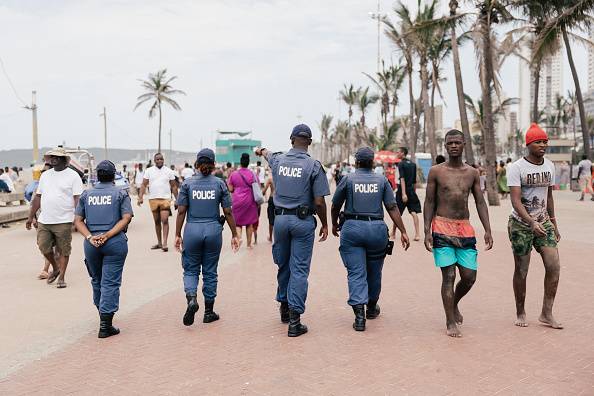Over the next seven days South Africa will remember these three notorious assassinations and reflect on their meaning.
Today, 16 August, marks the 10th anniversary of the shooting down of 34 striking Marikana workers, including the assassination of strike leaders like Mgcineni Noki.
Tomorrow, 17 August, is the 40th anniversary of the murder of anti-apartheid activist, journalist and communist Ruth First. Then, next week, 23 August marks the first anniversary of the assassination of Gauteng health department official and corruption whistle-blower Babita Deokoran.
Although their murders are separated by 40 years and two eras – apartheid and democracy – their lives and their killings have more in common than we would think at first glance.
First of all, there has not been justice for any of them.
Killer and spy Craig Williamson, self-confessed murderer of First (and many others), lives out his life with his wife in peace and plenty – enjoying the very freedoms that he killed First for fighting for.
By rights he should be in prison.
As far as the comrades, friends and families of the Marikana miners are concerned, so too should their killers. Despite millions of rands spent on the Farlam Commission and court cases, actual responsibility for the killings has not been assigned. Those on whose political watch (and possibly even instructions) they occurred continue to occupy high political and business office.
To add salt to the wounds, little has changed in the social conditions of communities around the mines, or the rural areas from which the men came.

Then, while the six men who allegedly pulled the trigger on Babita Deokoran are on trial, their paymasters are not. This is despite mounting evidence from a series of investigations by News24 (read here and here) of the brazen corruption that Deokoran uncovered which seems to suggest a motive for her murder.
Again, despite the crocodile tears that mixed with her blood, the Gauteng government has not even managed to complete lifestyle audits of its MECs and senior public servants.
Visit Daily Maverick’s home page for more news, analysis and investigations
True to its name and history in the province of gold, words always speak louder than actions.
In each case, those who benefited from the killings are still free.
The bottom line is that the justice system is still failing all of them – and by failing them, fails us all. The rule of law is a founding value of our Constitution but it is hard to build trust in the rule of law when the law so visibly fails to deliver justice in the most egregious cases of injustice.

This is why – before the next murder takes place – repeated calls by whistle-blowers, who continue to live in the shadow of assassination, for a holistic system of protection need action.
Assassination nation
Another reason we need justice to be seen to be done in these cases is because the assassination of political opponents and activists is becoming more common.
And in very few of them is justice and truth delivered.


We think of Bazooka Radebe from the Amadiba Crisis Committee, Nokuthula Mabaso and 22 other leaders of Abahlali baseMjondolo, environmental activist Fikile Ntshangase, and just a few days ago, Anton Mzimba.
In fact the incomplete list on the Human Rights Defenders memorial of human rights defenders and whistle-blowers who have been murdered in democratic South Africa is shockingly long. In the killing count South Africa is not much better than countries like Colombia. The blood of activists betrays its democratic claims.
Nevertheless, when activists have kept the light on for decency, allowing their lives to be snuffed out like this makes our whole society darker.
Love and courage
Finally, although very different from each other, First, the Marikana miners and Deokoran all died in the interests of a just, free and fair South Africa. They were fighting for socialism, equality, dignity and honesty.
History has shown that no assassin can quell these ideals.
None of them sought to be a martyr. All of them had daughters and sons, knew love and loved living. Ironically, by killing them their killers have ensured that their life and example will endure forever, and inspire future generations of activists to complete their struggle.
Indeed, at the memorial for First this week, what was striking among those who spoke about her was how after 40 tumultuous years their love, laughter and detailed memories of the unique individual she is, is unblemished. It was this love that fed into her politics.
This week, as we remember these heroes, we should expect nothing from the politicians but fake tears. But for social justice activists, often struggling with our own feelings of vulnerability and foreboding, exhausted by the 1,000 unnatural shocks that rain down on poor people’s lives, the takeaway is that we still owe them a duty to step up the struggle for a better and fairer society. Their examples should still inspire us. DM/MC
![]()




















Discussion about this post